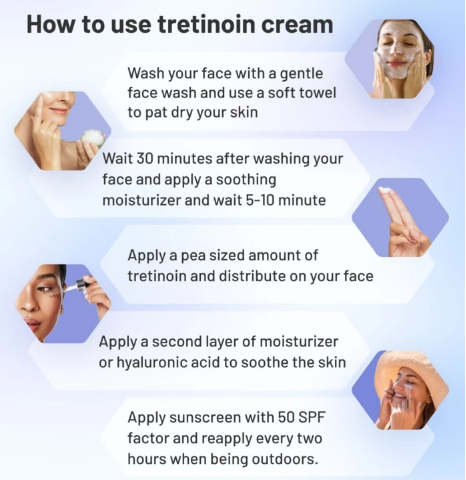Introduction
Skin oils have become a staple in skincare routines for their numerous benefits, including hydration, nourishment, and anti-aging properties. With a variety of skin oils available, each with unique benefits, it can be challenging to choose the right one for your skin type and needs. This article explores the best skin oils, their benefits, and how to incorporate them into your skincare routine for healthy, glowing skin.
Benefits of Using Skin Oils
Skin oils are rich in essential fatty acids, vitamins, and antioxidants that offer several benefits:
- Hydration: Oils help to lock in moisture, keeping the skin hydrated and preventing dryness.
- Nourishment: Rich in nutrients, skin oils nourish the skin, promoting a healthy complexion.
- Anti-Aging: Many oils contain antioxidants that combat free radicals, reducing the appearance of fine lines and wrinkles.
- Healing Properties: Some oils have anti-inflammatory and antimicrobial properties that help soothe irritated skin and promote healing.
- Enhancing Skin Barrier: Oils help to strengthen the skin barrier, protecting against environmental damage and pollutants.
Top Skin Oils and Their Benefits
1. Jojoba Oil
Benefits:
- Mimics the skin’s natural sebum, making it suitable for all skin types.
- Non-comedogenic, meaning it won’t clog pores.
- Rich in vitamins E and B-complex, it helps repair and control skin damage.
How to Use:
- Apply a few drops to your face after cleansing and toning, or mix it with your moisturizer.
2. Argan Oil
Benefits:
- High in vitamin E and essential fatty acids.
- Provides deep hydration and helps to improve skin elasticity.
- Anti-inflammatory properties make it ideal for reducing redness and irritation.
How to Use:
- Use as a night serum by applying a few drops to your face before bed.
- Can also be mixed with foundation for a dewy finish.
3. Rosehip Oil
Benefits:
- Packed with vitamins A and C, which are essential for skin regeneration and brightening.
- Contains essential fatty acids that help to improve skin texture and tone.
- Known for its anti-aging properties, it helps reduce the appearance of scars and fine lines.
How to Use:
- Apply directly to the skin or mix with your daily moisturizer.
- Use it as an overnight treatment for more intensive hydration.
4. Marula Oil
Benefits:
- High in antioxidants and omega fatty acids.
- Provides intense hydration and helps to soothe irritated skin.
- Lightweight and easily absorbed, making it suitable for all skin types.
How to Use:
- Apply a few drops after cleansing and before moisturizing.
- Can be used to tame frizzy hair and condition cuticles as well.
5. Tea Tree Oil
Benefits:
- Known for its powerful antibacterial and anti-inflammatory properties.
- Effective in treating acne and preventing breakouts.
- Helps to reduce redness and swelling associated with acne.
How to Use:
- Dilute with a carrier oil before applying to the skin.
- Use as a spot treatment for blemishes or mix a few drops with your cleanser.
6. Olive Oil
Benefits:
- Rich in vitamins A, D, E, and K.
- Deeply moisturizes and nourishes the skin.
- Antioxidants help to combat oxidative stress and prevent premature aging.
How to Use:
- Use as a makeup remover or massage into the skin for a deep hydration boost.
- Can also be used as a carrier oil for essential oils.
7. Coconut Oil
Benefits:
- Naturally antibacterial and antifungal.
- Excellent moisturizer that can penetrate deep into the skin.
- High in lauric acid, which helps to repair skin and improve texture.
How to Use:
- Use as a body moisturizer or apply to the face as an overnight mask.
- Ideal for use on dry areas like elbows, knees, and cuticles.
How to Choose the Right Skin Oil for Your Skin Type
Dry Skin
- Opt for richer oils like Argan, Olive, and Coconut oil that provide intense hydration and nourishment.
Oily and Acne-Prone Skin
- Choose lightweight, non-comedogenic oils like Jojoba and Tea Tree oil to avoid clogging pores and help control oil production.
Sensitive Skin
- Look for soothing oils with anti-inflammatory properties like Marula and Rosehip oil to calm and protect sensitive skin.
Mature Skin
- Use oils high in antioxidants and essential fatty acids like Rosehip and Argan oil to combat signs of aging and improve skin elasticity.
Tips for Incorporating Skin Oils into Your Skincare Routine
- Patch Test: Before using a new oil, perform a patch test to ensure you do not have an allergic reaction.
- Mix with Moisturizer: Add a few drops of oil to your moisturizer for an extra hydration boost.
- Apply on Damp Skin: Applying oils on slightly damp skin helps to lock in moisture and enhance absorption.
- Use Sparingly: A little goes a long way. Start with a few drops and increase if needed.
- Nighttime Use: Oils are best used at night to allow for maximum absorption and benefits while you sleep.
Conclusion
Skin oils offer a range of benefits from hydration and nourishment to anti-aging and healing properties. With so many options available, it’s essential to choose the right oil for your skin type and incorporate it into your skincare routine effectively. Whether you have dry, oily, sensitive, or mature skin, there’s an oil out there that can help you achieve healthy, glowing skin. Start exploring these top skin oils and experience the transformative benefits they can bring to your skincare regimen.




